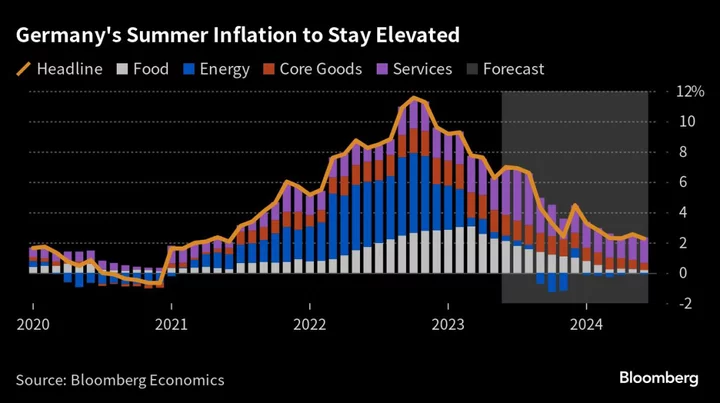
German Business Outlook Plummets as Recession Shadow Lingers
Germany’s business outlook deteriorated to the lowest seen this year, evidence that Europe’s biggest economy is struggling to
1970-01-01 08:00
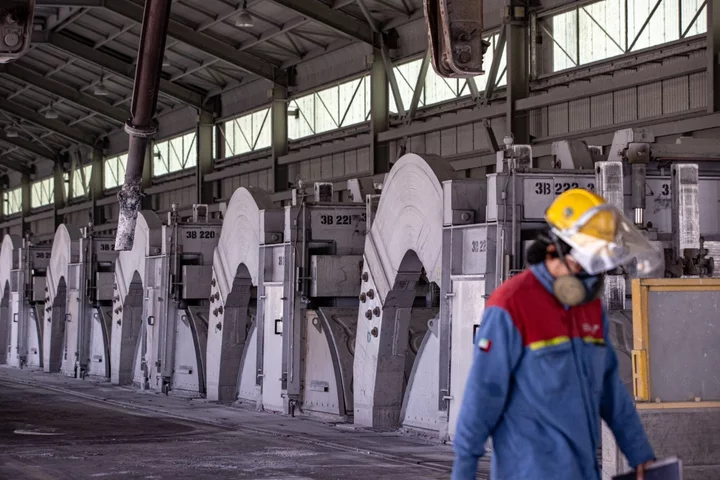
EU Faces Pressure to Revive Its Social Investing Rulebook
The European Union is under pressure to revive plans to add a social pillar to its ESG-rulebook, after
1970-01-01 08:00

Dua Lipa reveals why she did not perform with Sir Elton John at Glastonbury
Dua Lipa was having a dinner party when fans thought she would be performing with Sir Elton John at Glastonbury on Sunday.
1970-01-01 08:00

Amazon workers in Leipzig start 48-hour strike for higher wages
Workers at Amazon's warehouses in Germany's eastern city of Leipzig started a 48-hour strike on Monday to press
1970-01-01 08:00

Russian Mogul’s Yacht Heads to Homeland After Transoceanic Trip
Russian tycoon Alexey Mordashov’s $500 million superyacht is headed for his homeland after more than a year criss-crossing
1970-01-01 08:00

Trump news – live: Trump rails against ‘villains’ as he is named ‘Man of the Decade’ at Michigan GOP dinner
Donald Trump railed against a list of “villains” including electric vehicles (EVs), President Joe Biden and “radical left lunatics” as he delivered a speech in the battleground state of Michigan on Sunday night. The former president spoke before 2,500 supporters at Oakland County GOP’s Lincoln Day Dinner, where he was honoured by the party as its “Man of the Decade”. During the event, he claimed that electric vehicles would result in the “decimation” of the state’s traditional auto industry and claimed that his criminal indictments are “bulls***”. Michigan could be a key focus of the 2024 race after Mr Trump won the state in 2016 but lost it to Mr Biden in 2020. His appearance came one day after he told a crowd of evangelicals on Saturday that the federal government has a “vital role” in the restriction of abortion access and once again took credit for overturning Roe v Wade. But the former president did not detail his proposal for national abortion restrictions at the Faith & Freedom Coalition conference in Washington DC, in contrast to his 2024 rival Mike Pence, who said he supports outlawing care nationally at 15 weeks of pregnancy. Read More Trump celebrates anniversary of anti-abortion ruling as he tells religious crowd ‘I’m getting indicted for you’ Trump declares himself the ‘most pro-life’ president in American history Biden warns Republicans aren’t done with abortion bans as protesters hit streets on anniversary of Roe’s fall Trump quietly changes political fundraising site to funnel funds toward legal woes
1970-01-01 08:00

Sarah Ferguson details undergoing mastectomy to treat breast cancer: ‘It was only a shadow’
The Duchess of York has urged people to get their breasts checked after it was confirmed that she was diagnosed with breast cancer. Sarah Ferguson, 63, opened up about how she was preparing to undergo a single mastectomy, a procedure to remove a breast in order to treat the cancer. In the latest episode of her podcast with businesswoman Sarah Thomson, Tea Talks with the Duchess & Sarah, Ferguson revealed that she was scheduled for the surgery the day before they recorded. Emphasising how important it was to her to speak about having cancer, she said she thought of her father, Ronald Ferguson, and his experience with cancer in the Nineties. “What sprang to mind was my father, when everyone rang him and said, ‘Why, no one wants to hear from me – and I don’t mind if no one wants to hear from me, because I’m telling you that I am doing this,” she said. “I am telling people out there because I want every single person that is listening to this podcast to go and get checked.” On Sunday (25 June), a spokesperson for the duchess confirmed that she was diagnosed with breast cancer after having a routine mammogram screening. Reflecting on her diagnosis in the podcast, Ferguson said she was initially “really worried” about whether or not she should talk about it. “It wasn’t until we talked it through before this podcast that actually… hold on a minute, you’ve done so much work. You’ve now caught this cancer in time, I pray, and then right now, if I can talk about it publicly, then everybody, please, don’t wait,” she said. Ferguson also praised the NHS staff at the Royal Free Hospital in London and said they did “amazing work” in catching her cancer. “Had it not been for that extraordinary injection in you to contrast, and it shows the contrast and it shows where to go – if I hadn’t done that, it was only a shadow, they wouldn’t have found out that it needs to be immediately sorted,” she added. Ferguson’s spokesperson said yesterday: “She was advised she needed to undergo surgery which has taken place successfully. The Duchess is receiving the best medical care and her doctors have told her that the prognosis is good. She is now recuperating with her family.” He continued: “The Duchess wants to express her immense gratitude to all the medical staff who have supported her in recent days. “She is also hugely thankful to the staff involved in the mammogram which identified her illness, which was otherwise symptom-free, and believes her experience underlines the importance of regular screening.” Ferguson, who was married to the Duke of York from 1986 to 1992, and divorced in 1996, is reportedly recovering at Royal Lodge in Windsor, which she still shares with Prince Andrew. For more than 30 years, she has worked with the Teenage Cancer Trust and frequently campaigns for breast cancer awareness. In 2019, during the Breast Cancer Foundation’s annual gala, she said in an interview: “It’s that hidden, frightening thing, the word cancer, the big C. Then on top of that is the word ‘breast’, people just don’t use it. “The secret for the Breast Cancer Foundation is to spread awareness and to say it’s OK. It’s not OK, of course it’s awful. But if you have got it or you worry, or you think you may, go and have it checked and we are here to support you.” Ferguson’s father, Ronald Ferguson, had prostate cancer in 1996 and also had skin cancer. He died in 2003 at the age of 71 of a heart attack. Read More Gongs, chanting and Celtic Shamanism: What I learnt from a day at the Glastonbury Healing Field Sarah Ferguson, Duchess of York, has surgery for breast cancer A woman stopped tidying up after her husband accused her of doing ‘nothing’. Then she filmed the results
1970-01-01 08:00
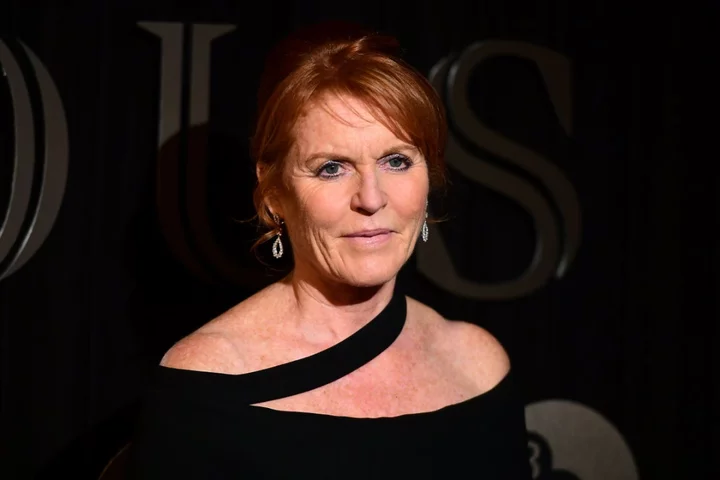
Sarah, Duchess of York has operation for breast cancer: What to know about mammograms
Sarah, Duchess of York has revealed she is recovering from an operation after being diagnosed with breast cancer during a routine mammogram. Here, the PA news agency looks into who can get a mammogram and what happens. What is a mammogram? A mammogram is a breast x-ray which looks for signs of cancer, according to the charity Breast Cancer Now. How can I get a mammogram? Patients can receive a mammogram to look for cancer that may be too small to see or feel as part of breast screening. Women aged between 50 and 71 are automatically invited for breast screening through their GP practice every three years. Those over the age of 71 can continue to have breast screening every three years by contacting their local screening unit through the NHS website or through their GP. The sooner breast cancer is diagnosed, the more effective treatment is likely to be, reducing the risk of more extensive surgery. Women may also be referred to a breast clinic for a mammogram by their GP if they have symptoms or a breast change that requires investigating. What are the symptoms of breast cancer? The first symptom of breast cancer that most women notice is a lump or an area of thickened tissue in their breast, the NHS website states. Women are advised to see their GP if they experience a new lump or area of thickened tissue in either breast, a change in the size or shape of one or both breasts or fluid discharge from either nipple. Other symptoms include a lump in either armpit or a change in the skin of the breasts, including puckering, scaly or itchy skin, crusting or a rash. How can women check their own breasts? As it is possible for breast cancer to develop in the three years between each mammogram, it is important for women to check their breasts regularly for any signs of cancer, according to the charity Breast Cancer Now. The NHS Breast Screening Programme recommends that women know what is normal for them, to look at their breasts and feel them, to know what symptoms to look for and to report any changes to a GP without delay. To check the breasts, the NHS website recommends looking at them and feeling each breast and armpit up to the collarbone. It may be easier to do this in the shower or bath. Women can also look at their breasts in the mirror both with their arms raised and by their sides. What happens during a mammogram? During a mammogram, a female doctor asks the patient to remove their clothes from the waist up and stand in front of the mammogram machine. The breasts are placed one at a time on the x-ray machine and images of each breast are taken. The scan itself should only take a few minutes, while the whole appointment should take about half an hour, according to the NHS website. The results of the mammogram are sent by post to the patient and their GP. According to Breast Cancer Now, around 4% of women are called back to a breast clinic after routine screening for more tests. While most women recalled will not have breast cancer, the follow-up appointment may involve a breast examination, further scans – such as a mammogram or an ultrasound – or a biopsy – where a small sample of tissue is taken. Breast cancer facts and figures Breast cancer is the most common type of cancer in the UK, and about one in seven women are diagnosed with the disease in their lifetime, according to the NHS website. More than 80% of breast cancers occur in women over 50 and the risk continues to increase with age. Mammograms are not often used in women under 40 as younger women have denser breast tissue, which can make the x-ray image less clear and changes harder to identify, according to Breast Cancer Now. However, for women with a family history of breast cancer, UK guidelines recommend they should start having screening mammograms every year in their forties. Screening prevents an estimated 1,300 deaths from breast cancer each year in the UK, according to Breast Cancer Now.
1970-01-01 08:00
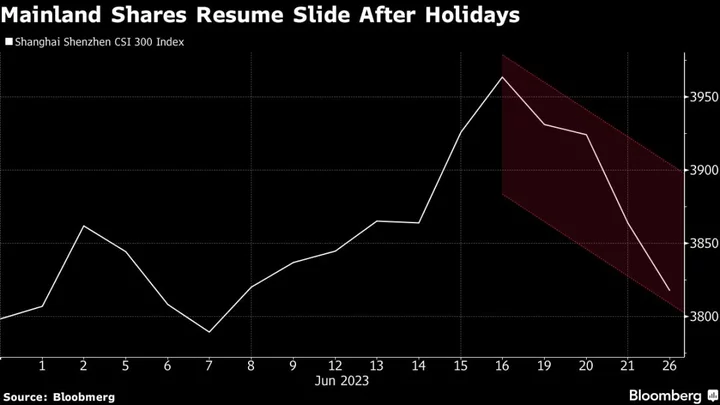
Onshore Chinese Stocks Slide, Playing Catch-Up After Holidays
Chinese stocks declined in catch-up trade as weak holiday spending data added to concerns that the recovery has
1970-01-01 08:00
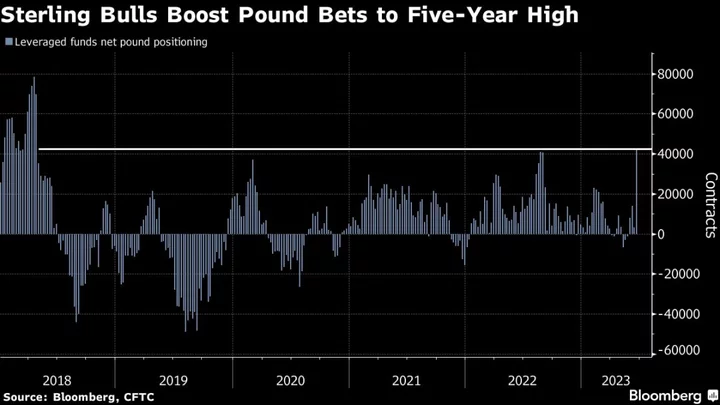
Pound Traders Upped Bullish Bets Ahead of BOE’s Surprise Hike
Speculative traders boosted bullish wagers on the pound to the strongest in more than five years in the
1970-01-01 08:00

Morgan Stanley’s Wilson Says Stock Risks Have Rarely Been Higher
One of Wall Street’s most bearish strategists said US equities are facing a wall of worry, which could
1970-01-01 08:00

Pro-reform Mitsotakis wins second term in Greek election that sees surge by small far-right parties
Greece's center-right leader Kyriakos Mitsotakis is to be sworn in as prime minister on Monday, hours after easily winning a second term with a record-high margin over the leftwing opposition in an election that also ushered new far-right parties into Parliament. With 99.67% of the vote counted, Mitsotakis' New Democracy party had 40.55% of the vote — more than twice the main opposition Syriza's 17.84%. It was the largest margin of victory in half a century, and slightly expanded ND's 20-percentage-point lead in previous election five weeks before. Held under a new electoral law that boosts the first party, Sunday's vote gives ND a comfortable majority of 158 seats in the 300-member Parliament, with Syriza getting 48. Center-left PASOK elected 32 lawmakers and the Stalinist-rooted Communist Party 20. The remaining 42 seats will be shared between three far-right parties — including one endorsed by a jailed former leader of the defunct, Nazi-inspired Golden Dawn party — and one representing the far-left. Voter turnout was just under 53%, compared to just over 61% in the May vote. Mitsotakis, 55, campaigned on a platform of securing economic growth and political stability as Greece gradually recovers from a nearly decade-long financial crisis. Greek President Katerina Sakellaropoulou is set to formally hand him the mandate to form a government on Monday, after which he will be sworn in and announce his new Cabinet. His main rival, 48-year-old Alexis Tsipras, served as prime minister from 2015 to 2019 during some of the most turbulent years of Greece’s financial crisis. Despite Syriza's dismal performance, Tsipras has shown no inclination to resign, and there have been no open calls from within his party for him to do so. After Sunday's result, Tsipras said Syriza would move on to focus on next year's European parliamentary elections. Mitsotakis, a Harvard graduate, comes from one of Greece’s most prominent political families. His late father, Constantine Mitsotakis, served as prime minister in the 1990s, his sister served as foreign minister and his nephew is the current mayor of Athens. The younger Mitsotakis has vowed to rebrand Greece as a pro-business and fiscally responsible eurozone member. The strategy, so far, has worked. New Democracy won in all but one of the country's 59 electoral regions, capturing traditional Socialist and leftwing strongholds, some for the first time. Despite scandals that hit the Mitsotakis government late in its term, including revelations of wiretapping targeting senior politicians and journalists and a deadly Feb. 28 train crash that exposed poor safety measures in public transport, voters appeared happy to return to power a prime minister who delivered economic growth and lowered unemployment. Read More Ukraine war’s heaviest fight rages in east - follow live Charity boss speaks out over ‘traumatic’ encounter with royal aide
1970-01-01 08:00
